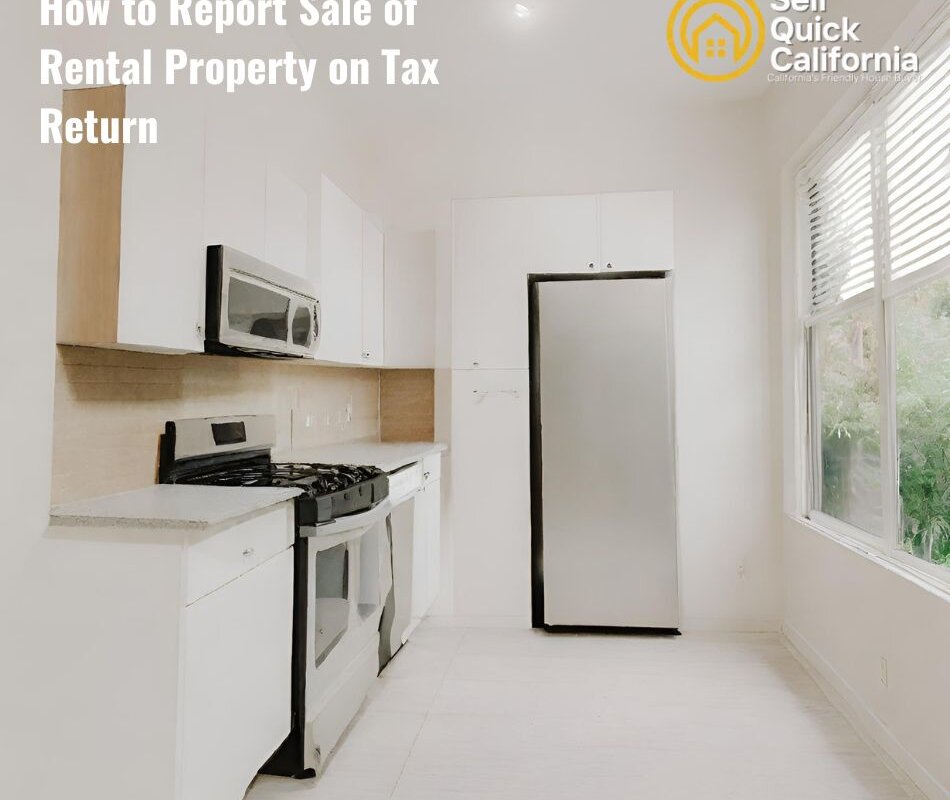Navigating taxes can often feel like a dizzying maze, especially when it comes to reporting the sale of rental property.
At Sell Quick California, we understand the complexities involved. Ensuring precise reporting is not only essential to sidestep penalties but also to minimize the risk of an audit.
Ease your burden with our comprehensive guide below.
Reporting the sale of a rental property tax form options
When it comes to reporting the sale of a rental property on tax forms, Sell Quick California offers a variety of options tailored to your needs:
- Form 4797 (Sale of Business Property)
- Form 8949 (Sales and Other Dispositions of Capital Assets)
- Form 1040 (U.S. Individual Income Tax Return)
- Form 8824 (Like-Kind Exchanges)
- Form 1099-B (Proceeds from Broker and Barter Exchange Transactions)
- Form 1099-S (Proceeds from Real Estate Transactions)
Understanding these forms thoroughly is essential for navigating the tax implications effectively.
Wondering whether to use Form 4797 or 8949? It depends on the nature of your property. Form 8949 is suitable for standard sales, while Form 4797 is preferable for properties with depreciation deductions or business use. Making the right choice ensures compliance with California tax regulations and optimizes your tax situation.
How to report the sale of a rental property on tax return forms
To assist you through this process, we’ve outlined the essential steps you need to follow to ensure accuracy and compliance.
Before you start, ensure you have gathered all the relevant financial documents associated with the sale.
Let’s break down the process step by step:
1. Calculate capital gain or loss
Before completing any forms, regardless of whether you’re selling at a loss, calculate the capital gain or loss from the sale.
Simply deduct the property’s adjusted basis (typically purchase price plus improvements minus depreciation) from the selling price. The resulting figure is your capital gain or loss, which forms the basis for your tax reporting.
Additional reading: How to compute the capital gain on a rental property
2. Determine the appropriate forms
Choose which IRS forms to utilize based on your specific circumstances:
4797: if your sale involves depreciation deductions or business use of the property (step 3 below) 8949: if you didn’t partake in a like-kind exchange or any other special transactions (step 4 below)

3. Where to report sale of rental property on 4797
When reporting the disposition of rental property on Form 4797, find the relevant section based on the nature of your transaction:
- Part 1: Sales or Exchanges of Property Used in a Trade or Business and Involuntary Conversions from Other Than Casualty or Theft (Most Property Held More Than 1 year) Utilize this section if your property was utilized for business purposes. Provide property details, including description, acquisition, and sale dates.
- Part 2: Ordinary Gains and Losses Incorporate any gains or losses that don’t fit into specific categories mentioned in other sections.
- Part 3: Gain from Disposition of Property Report gains from the sale of specific types of property, such as depreciable assets, using the guidelines outlined in the section.
- Part 4: Recapture Amounts If the business use of your property diminishes to 50% or less, report any recapture amounts under Sections 179 and 280F(b)(2) in this part.
How to report the sale of a rental property on 8949
Initiate the process by completing the form with the requisite information:
Property particulars Acquisition date Sale date Additionally, clearly indicate whether the property was held for short-term or long-term, based on the duration of ownership.
For short-term transactions (where capital assets were held for one year or less), select Box A, B, or C, depending on the transaction nature. If multiple short-term transactions are involved, fill out a separate Form 8949 for each applicable box.
It’s crucial to note that if the basis was reported to the IRS on Form 1099-B and no adjustments or codes are necessary, you can aggregate these transactions and directly input the totals on Schedule D, line 1a.
In instances where short-term transactions are not reported on 1099-B, ensure precise reporting by selecting the appropriate box.
For long-term transactions (capital assets held for more than one year), check Box D, E, or F, depending on the transaction details.
Similar to short-term transactions, if the basis was communicated to the IRS on 1099-B and no adjustments or codes are needed, you can consolidate the transactions and directly enter the totals on Schedule D, line 8a.
Long-term transactions not indicated on 1099-B should be separately reported on 8949.
Where to report the sale of an investment property on 1040 (IRS Schedule D)? This schedule is specifically tailored for reporting capital gains and losses from various transactions, including the sale of investment properties.
On Schedule D, furnish comprehensive details about the investment property sale, encompassing:
- Sales price
- Adjusted basis
- Resulting gain or loss
Ensure to summarize all capital gains and losses for compliance with IRS regulations.
Additional forms (if applicable):
Depending on your transaction, you may need to include other forms, such as:
- 8824 for like-kind exchanges
- 1099-S if you received proceeds from a real estate transaction
- 1099-B if you sold your investment property through a broker
Essential insights for reporting rental property sale on tax return forms
Effectively reporting the sale of your property hinges on comprehending IRS guidelines and strategically utilizing appropriate forms.
Forms 4797 and 8949 serve distinct purposes, catering to properties with specialized considerations or conventional sales. Understanding these distinctions is pivotal, particularly when striving for accurate reporting and adherence to California tax regulations.
By adhering to these key points, you can navigate the complexities of taxation with confidence, ensuring both precision and compliance.

